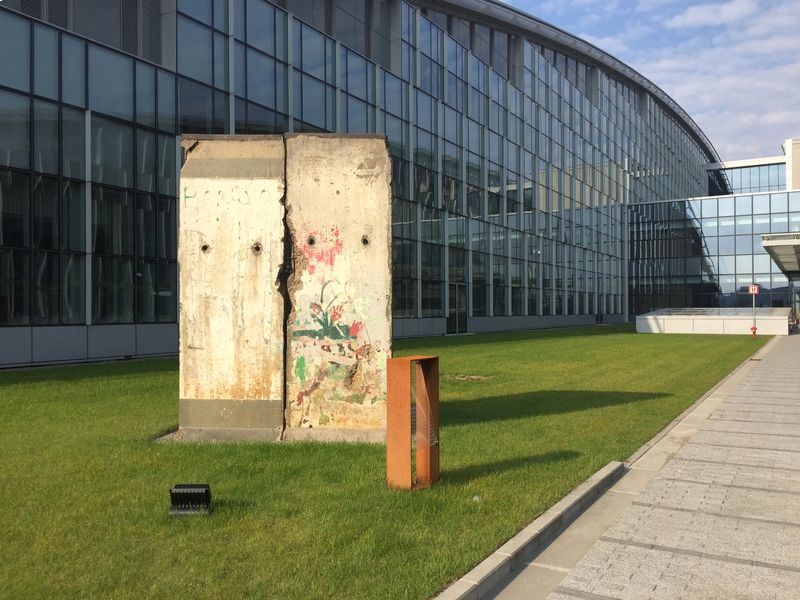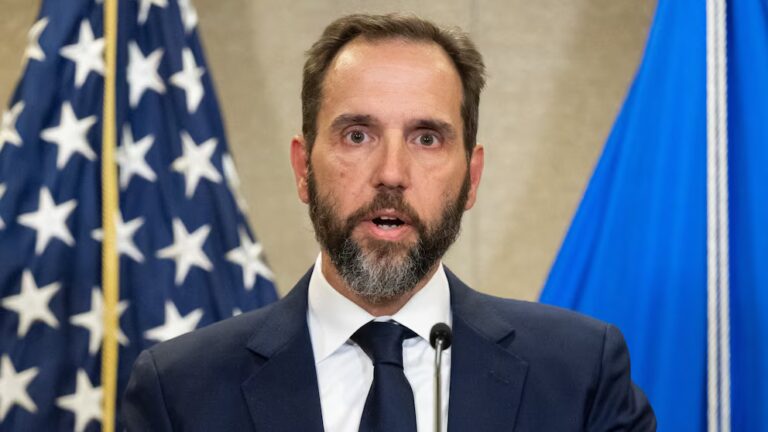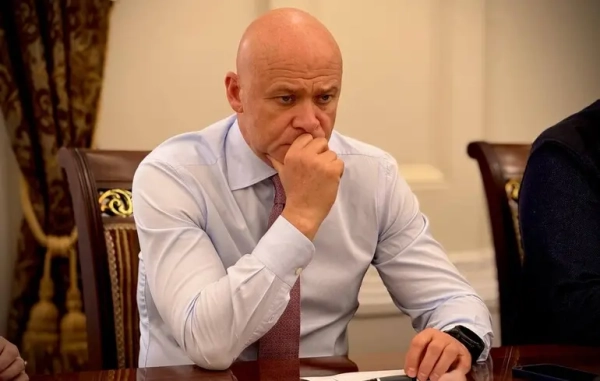
PenzaNews. From November 1, Russia has suspended the work of its official mission to NATO in Brussels, and also terminated the activities of two NATO structures in Moscow – a military liaison mission and an information bureau established at the Belgian embassy.
This decision was made by the Russian authorities in response to the unfriendly policy of the North Atlantic Alliance towards Moscow. On October 6, NATO announced a reduction in the number of the Russian mission in the organization from 20 to 10 people: eight diplomats had their accreditation revoked, and two more vacancies were abolished. The alliance asked Russian diplomats to leave Brussels until the end of October. At the same time, NATO Secretary General Jens Stoltenberg said that the decision to expel diplomats was not related to specific events.
“This decision is not linked to any particular event, but we have seen over some time now, an increase in Russian malign activity, and therefore we need to be vigilant, and we need to act when we see that members of the Russian delegation to NATO conduct activities which are not in line with their [diplomatic] accreditation, and therefore the accreditation is withdrawn,” he told a news conference in Brussels after a meeting of the NATO Council.
In turn, Russian Foreign Minister Sergey Lavrov, following a meeting with participants in the 18th annual meeting of the Valdai International Discussion Club, stressed that Russia had never initiated the deterioration of relations “with NATO, the European Union, or any other Western country or any other region of the world ”and proceeds from the assumption that the North Atlantic Alliance must take the first step to improve ties with Moscow.
He recalled that the alliance countries themselves “simply ‘buried’ the basic principle that underlies the creation of the Russia-NATO council, namely, the need to urgently consult in crisis situations.”
“[…] And as concerns the attitudes to our forces response step that are voiced in NATO capitals: it was a response to three of NATO’s steps because they reduced our mission three times. And, what is more important, they don’t let us work,” the head of the Russian Foreign Ministry stated.
He also drew attention to the fact that all contacts between the military “have been cut off.”
“Then, what kind of a loss of a possibility for dialogue are we talking about? Two years ago, our Chief of General Staff Valery Gerasimov suggested drills be moved to a certain distance from the contact line between Russia and NATO and an agreement be reached on minimal distances not to be violated by warplanes and warships. We suggested many other things. And there was a wall of silence [in response],” Sergey Lavrov noted.
On October 31, following the summit of the G20 countries in Italy, the Russian Foreign Minister told reporters that NATO does not want any interaction with Russia.
“We rely on facts, and the facts are as follows: NATO does not want any contact with us. When our representatives were still there, and the Russia-NATO Council was active, all they wanted was to lecture us, demanding to convene the Council every time they felt like discussing Ukraine. Their entire interest was to whip up propaganda and put pressure on Russia. The question is closed. If NATO has any reason to contact us, the Russian Ambassador to Belgium is there, who is responsible for bilateral relations. We have informed the North Atlantic Alliance that, if necessary, they can send signals through that diplomat,” Sergey Lavrov said.
Analyzing the current situation, Pal Steigan, Norwegian politician, publisher, writer, independent entrepreneur in the field of culture and information technology, expressed understanding in connection with Moscow’s decision to terminate the work of its permanent mission to NATO.
“It was absolutely over ripe for Russia to finish this charade. This system was never seriously meant from NATO’s side. It was just another trick to contain Russia,” the expert said and added that it was high time to pull the plug on this so-called partnership.
He stressed that throughout history Russia has never attacked Europe.
“Russia has vast resources and doesn’t need Europe. Even when I was a boy they spoke about the ‘evil Soviet Union,’ but it was the Western powers that started most of the wars and killed millions of people since 1945. The specter of the ‘Russian threat’ is a tool to keep the population in the Western countries at bay and make them accept even more thousands of billions to the military-industrial complex,” Pal Steigan explained his point of view.
According to him, from the day the Soviet Union collapsed he West have been plotting to take over the remains of the Soviet bloc.
“Imperialism has a ‘horror vacui,’ fear of the power vacuum. There never was a ‘peace dividend’ – funds released as a result of reducing the arms race. Instead we had the wars in the Balkans, the Kuwait war, the Iraq war, the war on Libya and Syria. These missiles [of medium and shorter range in case of their deployment in Europe] will increase the danger of war, but if there were a war they would not help a lot. The new Russian missiles and weapon systems have made the NATO-weapons obsolete,” the analyst noted.
In his opinion, there is a split in the Western establishment.
“Some military people understand very well that it would be too dangerous for them to take on Russia. It could lead to a breakdown of NATO. Macron had a seldom flash of insight when he said: NATO is brain dead. It is, as is the Norwegian ‘head’ of the alliance,” Pal Steigan added.
In turn, Fernand Kartheiser, Luxembourg Parliament member for the Alternative Democratic Reform Party (ADR), stressed that the latest crisis between NATO and Russia shows above all, that it is time to put an end to the current tensions.
“For years, NATO countries have established sanctions against Russia and vice-versa without the slightest positive result. NATO countries are pushing Russia into an aliance with China, which again is harmful to them and clearly counter-productive. The situation in Ukraine turns progressively into a frozen conflict and current attempts to put more military means in the hands of Ukraine are not conducive to any reasonable and peaceful settlement. In addition, Western countries need long term and reliable gas supplies from Russia,” the politician said.
According to him, it is really time to look for a new, constructive and honest relationship between the West and Russia.
“This must include a new look at the post-Soviet conflicts, which are not to be interpreted as Russian aggressions or expansionism but rather as an indication that the fast collapse of the Soviet Union has created a number of situations that have to be resolved in order to bring more stability and order to the former Soviet-controlled area,” Fernand Kartheiser explained.
From his point of view, the dialogue should cover a wide range of topics, including strengthening security in Eastern Europe and reestablishing mutual confidence, avoiding a new weapons race, including in the nuclear field, and reciprocal ending of all sanctions.
“The parties should negotiate a global settlement on Ukraine including the final status of Crimea [Crimea became a Russian region after a March 2014 referendum in which the overwhelming majority of residents voted for reunification with Russia; despite the convincing results of the referendum, Kiev refused to recognize Crimea as part of Russia], taking into account minority rights in Ukraine and Crimea, promoting the decentralisation and democratisation of Ukraine and recognizing the strategic interests of Russia in the Black Sea. They should reevaluate the current situation in Moldova, Georgia, Nagorno-Karabakh and other areas of conflict in the former Soviet area,” Luxembourg MP said.
At the same time, Russia, in his opinion, should support a democratic transition in Belarus, and Western countries – reintegrate Russia in international fora and accept Russia as a partner.
Meanwhile, Frank von Hippel, Senior Research Physicist at Princeton University, who served the Assistant Director for National Security in the White House Office of Science and Technology Policy, commented on what exactly the Western countries are putting into the concept of the “Russian threat.”
According to him, there are two perceived Russian threats to NATO countries, and one of them is “potential seizure of portions of NATO countries populated by Russian speakers.”
“The primary concern for NATO countries is in the Baltic States. In Estonia and Latvia, about one quarter of the populations are ethnic Russians who immigrated during Soviet times,” the expert said and added that some feel discriminated against by the national majorities, creating local dissatisfactions.
“The second concern is hackers based in Russia have carried out attacks on Baltic energy infrastructure as they have in Ukraine,” he explained.
From his point of view, dialogue and the reduction of threats is “always the best option.”
“The Soviet Union feared and Russia still fears that NATO could become and aggressive rather than defensive alliance and would much prefer non-NATO buffer states to its West. It has that in Belarus and Ukraine at the moment. NATO has formed from states that feared Soviet expansionism and the East European countries that joined NATO after the Cold War still fear Russian expansionism,” Frank von Hippel said.
“At the end of World War II, there were similar fears in Poland of West Germany trying to get back the territories that the Soviet Union gave to Poland after the end of World War II in exchange for the Polish territories. […] Fortunately, the ‘Ostpolitik’ movement won within Germany. Germany and Poland reconciled and the militaries within Germany and Poland do not worry about each other. There needs to be a similar reconciliation process between Russia and Ukraine and Russia and Georgia. Then, perhaps, Ukraine and Georgia will no longer feel a need to join NATO and NATO-Russia tensions could fade away,” former White House adviser suggested.
Edward Lozansky, American political scientist of Russian origin, President and Founder of the American University in Moscow, believes that the existence of NATO was called into question after the collapse of the USSR and the dissolution of the Warsaw Pact.
“Well, all the reasons for the continued funding of this alliance, which was created to protect the West from communist expansion, have disappeared. Nevertheless, NATO not only did not dissolve itself, but also began to actively expand from 16 members in 1991 to 30 at present, plus three more that declared their aspirations to NATO – Bosnia and Herzegovina, Georgia and Ukraine,” the expert reminded.
In his opinion, the main reasons for this development of events were the economy and geopolitics. The economic reason, in his opinion, was best explained back in 1987 by the former US Ambassador to Moscow George Kennan, who was called the architect of the Cold War.
“Were the Soviet Union to sink tomorrow under the waters of the ocean, the American military-industrial complex would have to remain, substantially unchanged, until some other adversary could be invented. Anything else would be an unacceptable shock to the American economy,” he quoted the American diplomat.
As for geopolitics, according to Edward Lozansky, the United States does not want to give up the hegemonic role of the world leader and regards NATO as an instrument to maintain it.
“Dialogue, of course, is necessary, and it seems that some steps in this direction are being taken after the June meeting of Putin and Biden in Geneva. However, the so-called ‘Washington swamp’ in every possible way prevents this and continues to incite anti-Russian hysteria in Congress, the media, against Nord Stream 2, as well as using Ukraine for the same purposes,” the political scientist concluded.
Photo: Jim Garamone, Wikipedia.org
PenzaNews // Source: https://penzanews.ru/en/analysis/67306-2021






